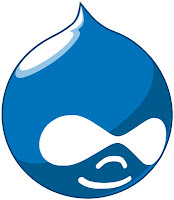According to Fortune, Open Source is slowly gaining acceptance in the corporate world. More and more corporates are beginning to see the merits of Open Source and have started embracing it. But all these changes didn't happened overnight. It was rather a painful journey. 'Sharing' was never a good thing for Corporates until recently. These changes were largely brought about by a string of Open Source success stories that happened over the years.
GNU/Linux
GNU/Linux is probably the biggest thing ever happened with Open Source. Richard Stallman, founder of Open Source Free Software movement, spearheaded a project to build a "complete Unix-compatible software system" based entirely on free software(free as in freedom).
Project was called GNU(GNU is Not Unix). During the same time Linus Torvalds built a Kernel(which is otherwise known as the heart of an opearting system) and made it Open Source. He named it Linux. The Linux kernel and GNU tools(libraries, compilers, text editors etc) combined to become GNU/Linux operating system(popularly known as 'Linux').
RedHat
RedHat is probably the first ever corporate establishment to make it big with Open Source. According to wikipedia, RedHat cloaked revenues of US$ 748.23 million in 2010. And if estimates has to be believed, RedHat is poised to become a billion dollar company in another year or so. [4 Must Watch RedHat Commercials]
Debian
Debian is one of those open source projects that truly heralded a new era for Linux based operating systems out there. Many of the most popular Linux distributions out there like Ubuntu are based on Debian GNU/Linux.
Debian is developed by over one thousand volunteers and is supported by donations through several non-profit organizations from around the world. Support Debian.
Ubuntu
Ubuntu needs no introduction especially if you are a daily reader of our blog. Ubuntu is the most popular Linux distribution out there and also probably the first ever Linux distro to overshoot popularity of Linux itself.
Ubuntu is basically a derivative of popular linux distro called Debian. Ubuntu is sponsored by the UK-based company Canonical Ltd., owned by South African entrepreneur Mark Shuttleworth. According to some rough estimates by Canonical, there are around 12 million Ubuntu users out there. Ubuntu is growing and growing fast.
WordPress
WordPress is an open source CMS(Content Management System), often used as a blog publishing application powered by PHP and MySQL. The core software is built in the true spirit of Open Source by hundreds of community volunteers. WordPress is used as a platform by over 300 of the 10,000 biggest websites.
WordPress is the most popular blog software in use today. The 2009 Open Source CMS Market Share Report reached the conclusion that WordPress enjoys the greatest brand strength of any open source content management systems.
Drupal
Like WordPress, Drupal is another popular free and Open Source Content Management System(CMS). From May 2007 to April 2008, Drupal was downloaded from the Drupal.org website more than 1.4 million times, an increase of approximately 125% from the previous year. It is estimated that, as of July 2010, about 7.2 million websites use Drupal as its CMS.
MySql is probably the most popular Open Source database management application in the world. MySQL began as a low-end alternative to more powerful proprietary databases and gradually evolved to support higher-scale needs as well. To give you an idea what "higher scale" means, MySql is the tool that powers such large scale websites like Wikipedia, Google and Facebook.
Apache is basically a webserver software which can be called as one among the most important build block of Internet as we know it today. Since April 1996 Apache has been the most popular web server software in use. As of February 2010 Apache served over 54.46% of all websites and over 66% of the million busiest.
Firefox is the most "visible" Open Source success story. Firefox's big fight with Microsoft's Internet Explorer is widely discussed in mainstream media. IE is still the most popular web browser in the world, primarily because Windows holds a monopoly in Operating Systems market share.
Firefox 4.0 is the next major Firefox version waiting in the wings for its final descent. It showcases features such as Tab Candy, which is probably going to kick start another round of innovation in the web browser market. [4 Beautiful Firefox Ads You Would Love to Watch]
OpenOffice
OpenOffice is the leading open-source office software suite for word processing, graphics, spreadsheets, presentations, databases etc. OpenOffice moved from a "free-but-not-so-useful" application to a viable alternative to Microsoft Office quite fast.
The OpenOffice.org web site reported more than 98 million downloads as of September 2007. OpenOffice.org 3.x reached one hundred million downloads, just over a year since its release.
Google Chrome
Google is probably the first ever BIG corporate to understand the true potential of Open Source. Google Chrome was the first in line among many applications released by Google as Open Source. Google Chrome is now the fastest growing web browser out there and is nearing a 10% market share. [4 Awesomely Creative Google Chrome Ads]
Android
Android is the newest kid in the block. Another Open Source product from Google, Android OS for mobile devices is eating into the market share of incumbents like iPhone's iOS and Nokia's Symbian OS.
According to Gartner, by 2012, Android would become the world's second most popular smartphone platform, behind Nokia's Symbian OS. A market dominated by Linux? Can you believe it!! It's already happening. [15 Beautiful Android Wallpapers For Desktop]
PS: I really wanted to include a lot of my favorite free software applications like GIMP, Blender etc. But the list is basically a collection of Open Source applications that had the biggest impact. And I wanted to keep it nimble. Hence the list.
PS: The list now contains 12 projects instead of 11, since Debian was not included in the original list. As some of our readers have pointed out, there is no point in listing "open source success stories" excluding Debian project.
[Image Source: 1, 2, 3]Also Read ..










